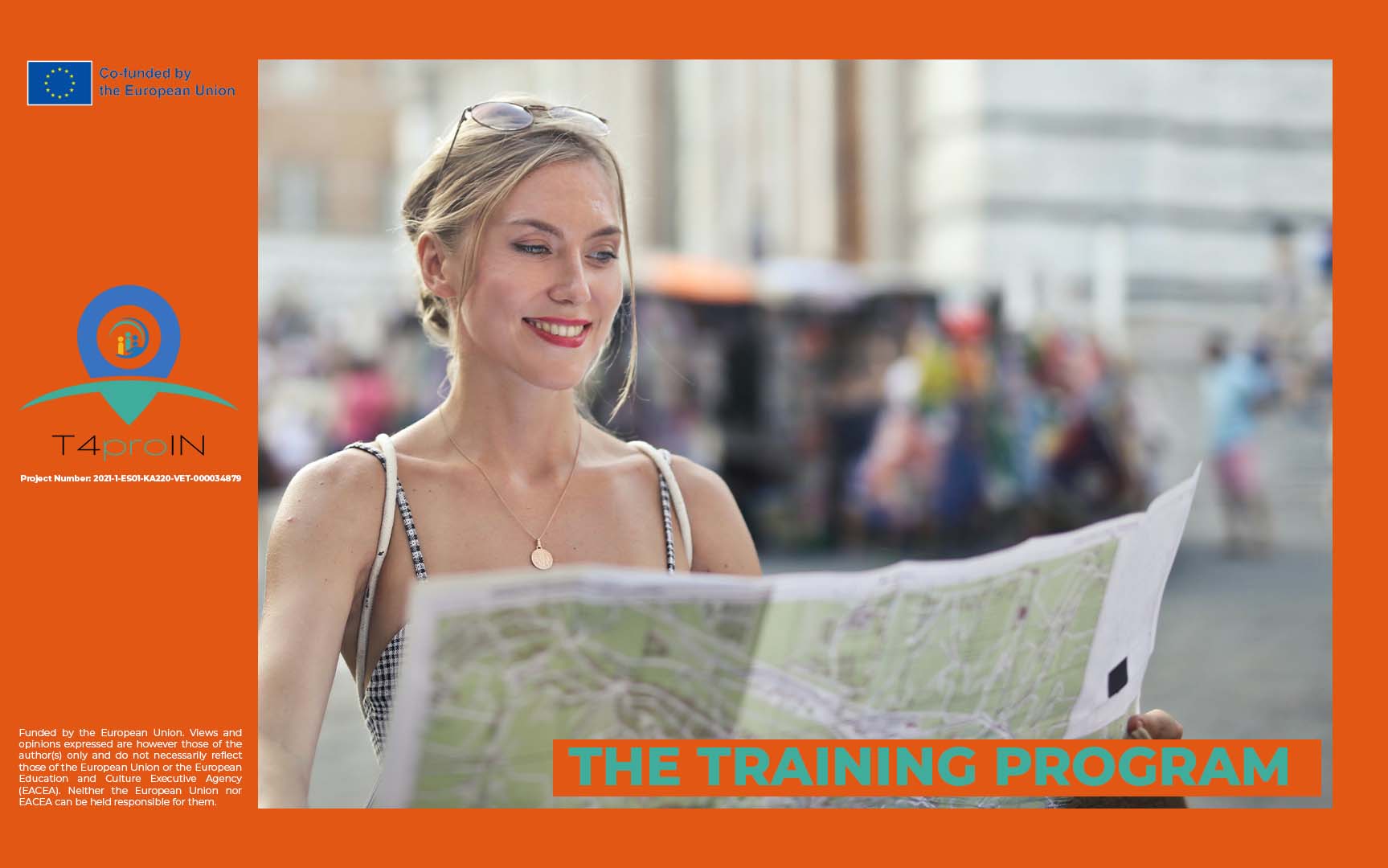Accessible tourism seeks to break down the barriers that can prevent people with disabilities from experiencing the joys of travel. To further this cause, the consortium of the T4proIN project is working together to establish common standards and required competences for staff working within the tourism industry.
In fact, a pivotal outcome of this gathering was the establishment of a comprehensive training program designed to enhance accessibility and foster a deeper understanding of the needs of individuals with disabilities among employers and employees. The training contents are based on what emerged through the need analysis report, questionnaires and webinars.
This training program encompasses 3 distinct modules, based on space adaptation, emergency and communication, and four types of disabilities (hearing, visual, physical impairments and neurodevelopmental disorders), elucidating the potential advantages of engaging with the project’s training program:
Module 0: This foundational module is accessible to both employers and employees. It covers an array of disabilities, encourages introspection, and strives to cultivate empathy, allowing participants to gain a richer understanding of the kinds of disabilities. It also includes strategies to handle emergency situations, according to the type of disability.
Module 1: Module 1, tailored for employees, delves into service adaptations and communication, imparting practical tips and strategies, such as how to set a restaurant table for customers with visual impairments, how to avoid crisis of people with neurodevelopmental disorders, how to insert signage for all customers, how to deal with assistance dogs, and so on.
Module 2: Designed exclusively for employers, module 2 centering on effective communication with individuals with disabilities and spatial adaptations (such as accessible websites, ramps, beach lidos adaptations, toilette arrangements), which can be taken under the decisions of employers.
A fundamental pillar of the learning are the animated video and the scenarios through which put in practice non-formal education, in addition to interactive tools which will be available in the E-learning platform, as medium for conveying training, offering high-quality educational resources to organizations involved in the tourism industry.
After the E-learning platform and E-map development, the training will undergo rigorous pilot testing to refine and optimize their functionality.
Take a look on the third project newsletter to discover more about its progress, about its interactivity, the last transnational meeting and the next steps!
You can also always keep up to date by following the project website, LinkedIn, Facebook and Instagram!
